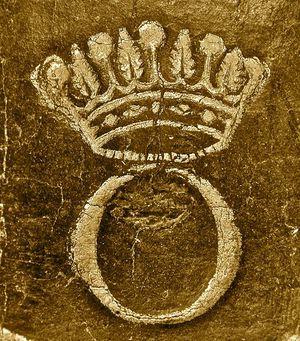John Boyle 1707-1762
John BOYLE, 5th Earl of Cork and Orrery 1707-1762
Biographical Note
Son of the Jacobite politician Charles Boyle, 4th Earl of Orrery, whose own extensive library was bequeathed to Christ Church, Oxford. He was tutored at home by his father’s secretary, the poet Elijah Fenton, before proceeding to Westminster School and Christ Church, Oxford where he matriculated in 1723 but left to travel in Europe without taking a degree. His first wife, Henrietta, the daughter of George Hamilton, the first earl of Orkney, died in 1732 shortly after he inherited his father’s title and estates in Ireland. He also inherited his father’s debts, and his life was beset by financial difficulties. He remarried in 1738 to an heiress, Margaret, daughter of John Hamilton of Caledon, Co. Tyrone. In subsequent years he divided his time between her family estate in Caledon, and his own estate at Marston, Somerset, and also lived briefly in Italy (1754-1755). He was a tory and a Jacobite sympathiser; after he took his seat in the House of Lords in 1735, he involved himself in various political schemes. He withdrew from politics in 1751. Orrery was the author of several books, including translations from the Latin, and an epistolary biography of Jonathan Swift, with whom he had become acquainted in Dublin. He had friendships with Alexander Pope and other prominent literary figures.
Books
Boyle used a series of armorial binding stamps, mostly based on a letter O beneath an earl's coronet. King's College London has a copy of Letters of Mr. Alexander Pope, and several of his friends (1737) which contains an inscription "The Gift of the Right Honble the Earl of Orrery to Mr. Griffyth" ; and editions of Virgil's Aeneid (1612-1617) and Georgics (1619), inscribed by him in Dublin in March 1749. The Orrery family library was sold by the 10th Earl of Cork in 1906.
Sources
- British Armorial Bindings.
- Dictionary of Irish Biography.
- Smith, Lawrence B. "Boyle, John, fifth earl of Cork and fifth earl of Orrery (1707–1762), biographer." Oxford Dictionary of National Biography.
- Information from Emma Poole, King's College London].

